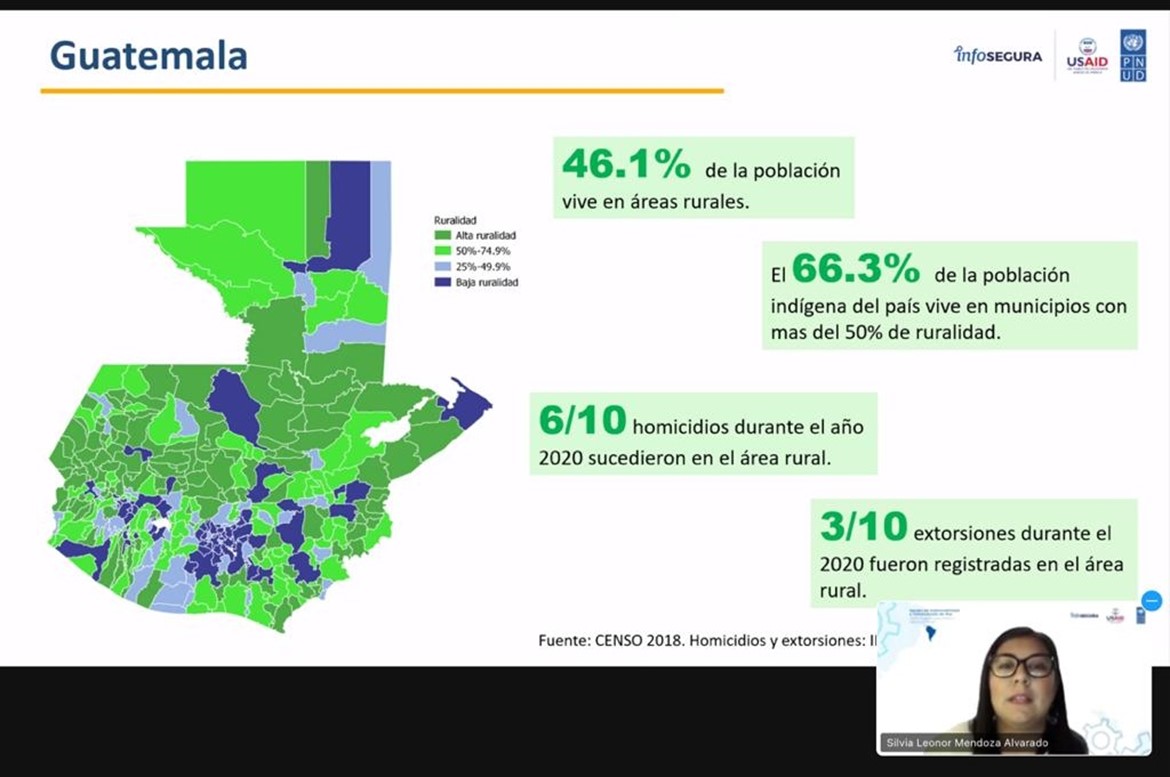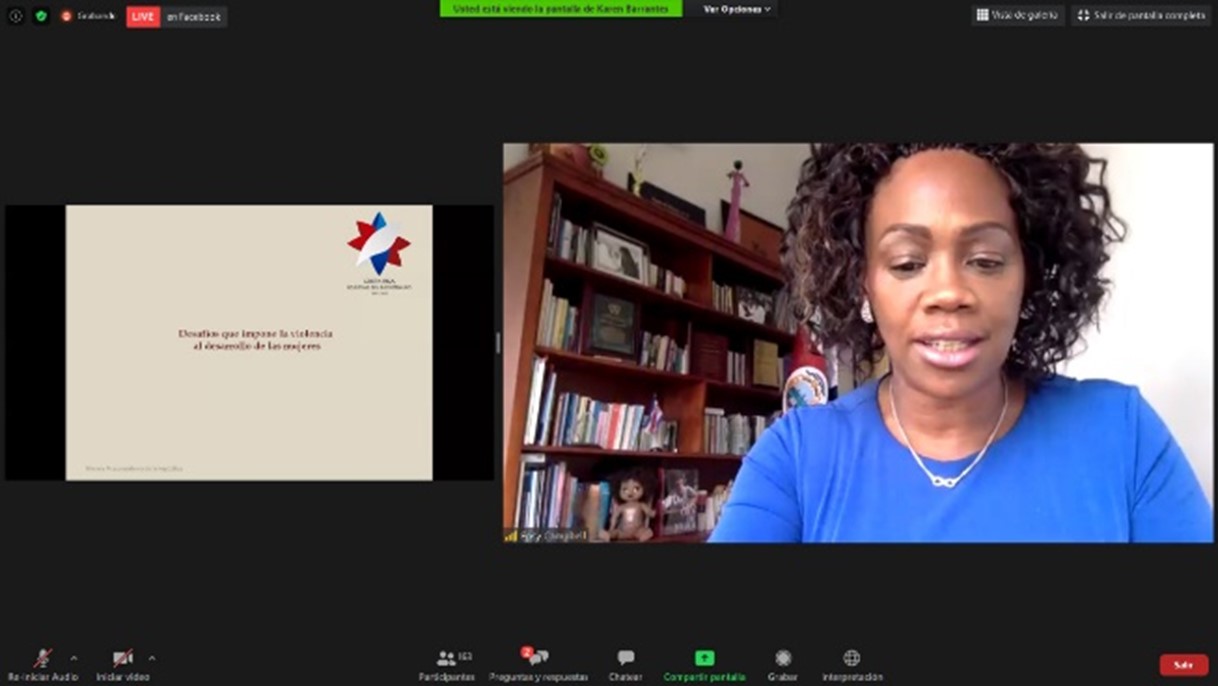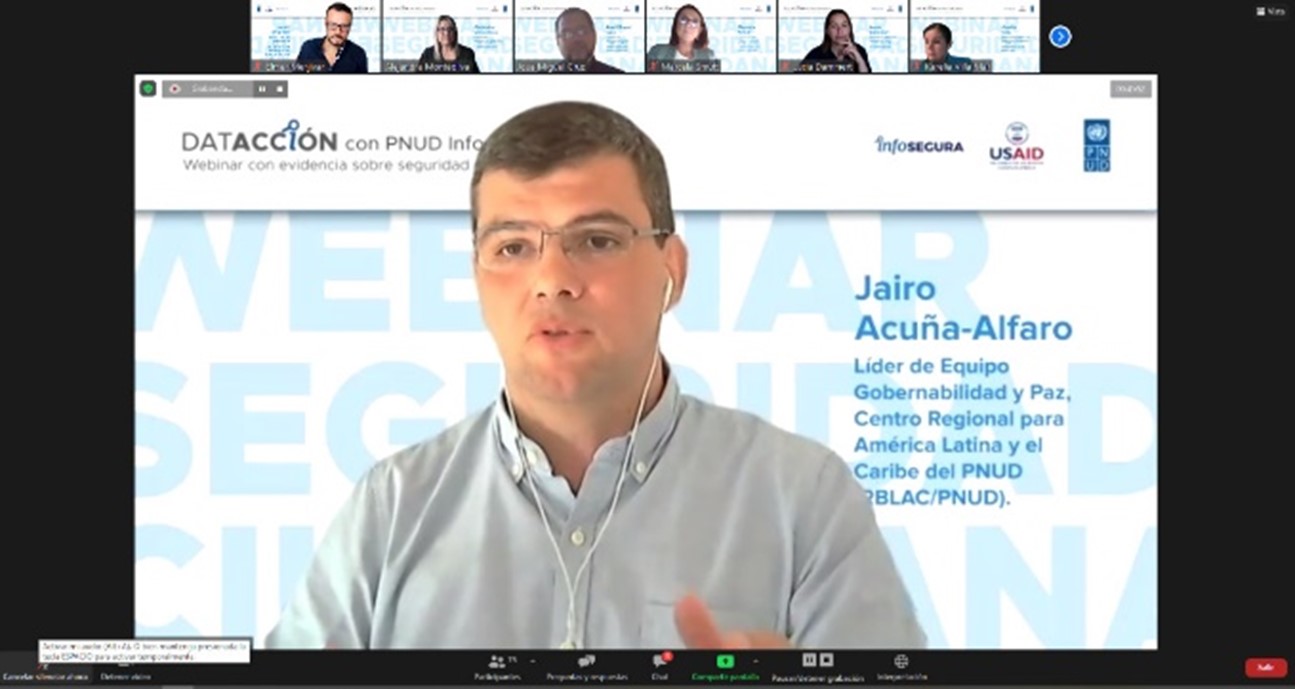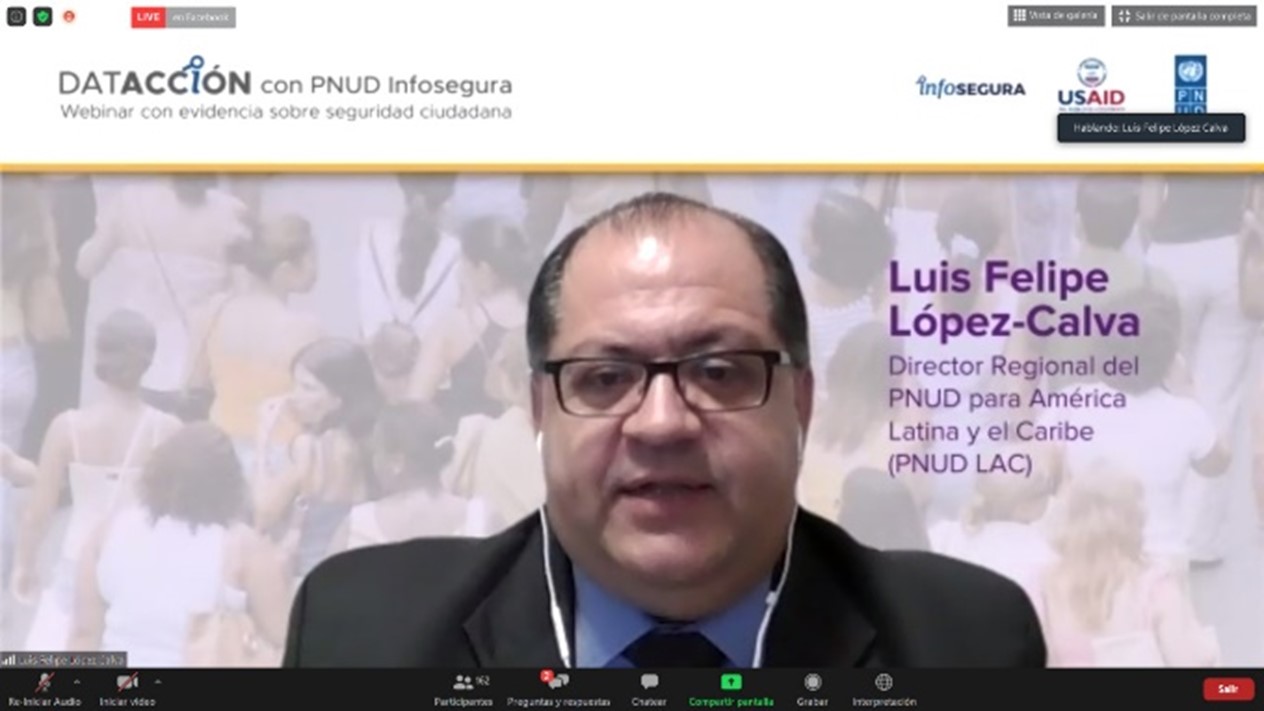 DatAction
Community of practice- and knowledge-exchange that fosters regional and multisectoral efforts in information management for public security
DatAction
Community of practice- and knowledge-exchange that fosters regional and multisectoral efforts in information management for public security

Challenges
For decades, public security challenges have hindered the sustainable development of Latin American and Caribbean countries. Seventeen of the 20 countries with the highest homicide rates globally are in Latin American countries. From 2010 to 2020, more than 170,000 people were victims of homicide in Central America and the Dominican Republic. In addition, governments in the region have institutional shortfalls in information management, which hinder the design of evidence-based policies for public security. The institutions have poor disaggregation of information, disjointed data and little collaboration between institutions working on public security information, which limits multidimensional analysis of violence. In addition, there is a large gap in understanding and addressing such security using digital tools.
Towards a Solution
DatAction is an online community of practice that promotes a space to share knowledge, experiences and good practices for improving management on citizen security information, implemented by the UNDP InFosegura[1] project. The project aims to create collaboration and synergies between institutions to strengthen their capabilities and implement solutions to their common problems with funding support from the United States Agency for International Development (USAID).
Government institutions, civil society and academia from all countries involved participate by sharing experiences and strategies to develop and improve data production, multidimensional analysis, use of information in public policy, strategic communication, tools for the attention of victims and others. DatAction contributes to SDG 16 (Peace, Justice, and Strong Institutions), through the strengthening of institutional capacities to address public security, and to SDG 4 (Quality Education), by improving data collection and production to build policies that reduce violence and promote an inclusive and safe school environment.
Institutions in charge of information management in the participating countries, such as national police, judicial agencies, public ministries and prosecutors' offices, forensic medicine, observatories, inter-institutional coordination groups and centres for analysis of security and coexistence share their experiences through DatAction webinars thereby helping other countries and institutions to overcome shared challenges and to promote innovation and collaboration.
UNDP-Infosegura, through UNDP Country Offices, works with countries to facilitate exchanges and to ensure a strategic view of the collaboration linking it with the public policy contribution. Some examples of how DatAction has been beneficial for institutions and countries are as follows:
- Costa Rica presented information management regarding road traffic accidents by the Costa Rican Inter-institutional Technical Commission for Statistics on Coexistence and Citizen Security (COMESCO). El Salvador expressed an interest in the good practice and agreed for a collaboration plan. To date, seven sessions between COMESCO and the Road Traffic Victim Assistance Fund (FONAT) have taken place to support an Observational Study of the Behaviour of Motorcycle Riders in San Salvador.
- El Salvador presented a violence against woman and girl survey (VAWG) collecting information of different types of VAWG. Honduras was interested in developing the first VAWG survey and agreed to collaborate with the Directorate General for Statistics and Census of El Salvador. El Salvador provided technical assistance to Honduras with methodologies and instruments.
- The violence index of multidimensional VAWG developed in Honduras was presented by the Woman´s National Institute. This tool assists in running an analysis of the evolution of VAWG from a multidimensional approach, and targets have been set to move towards the reduction of VAWG. This tool contributes to the creation of regulatory frameworks, an institutional architecture, resource management and human capital. This raised interest and now Guatemala with the Ministry of Governance is adapting the VAWG index.
- The Belize Crime Observatory presented the Integrated Information Management Platform as an innovative and multidimensional platform to promote a more structured framework for interagency collaboration for data-sharing, analysis, reporting and capacity-building. This served as a steppingstone to develop the Integrated System of Information for the Prevention of Violence (SIPREVI) in Guatemala.
When an institution makes a demand on a good practice broadcast at DatAction, UNDP-Infosegura takes actions to promote collaboration among institutions. First, there is a planning meeting to lay the foundation for the requirement. Then, a road map is drawn up, specifying the type of collaboration and steps to be taken. Lastly, the Project monitors the road map and agreements.
The exchanges promoted through DatAction contributed to national policies and laws, strengthening the countries’ institutional architecture on public security information management. DatAction has two seasons per year, each with webinars and exchanges. Topics are chosen based on the regional and national citizen security analysis undertaken through UNDP Country Offices through analysis, surveys, tools and other mediums In this war, DatAction helps to present the common or different challenges faced by countries and contributes to better identifying the applicability of the tools and the possibility of exchanging experiences, strategies, or policies.
Considerations to adapt or replicate DatAction include the following conditions:
- Existing interinstitutional collaboration with the government, academia and civil society.
- Systemic and innovative knowledge products that can be shared and discussed.
- Understanding the common challenges and differences of each country to present and foster solutions that are good practices.
- Resources for knowledge products, communication.
- Evaluate agreements frequently.
A lesson learned is that the exchange of knowledge or experiences among developing countries requires continuous inter-institutional coordination as does the implementation of innovative solutions that are of interest to the public and that respond to a problem that needs solving.
[1] Infosegura builds capacities by providing technical and strategic support for states in the design of evidence-based public policies for public security with a human right- and gender-based approach. It works all along the chain of information management.
Contact Information
Countries involved
Supported by
Implementing Entities
Project Status
Project Period
URL of the practice
Primary SDG
Primary SDG Targets
Secondary SDGs
Secondary SDG Targets
Similar Solutions
| NAME OF SOLUTION | Countries | SDG | Project Status | |
|---|---|---|---|---|
100% Online Electronic Apostille and Legalization Sharing Colombia’s effective e-government system with other countries in the region |
Belize, Costa Rica, Dominican Republic, El Salvador, Guatemala, Honduras | 16 - Peace and Justice Strong Institutions | Completed | View Details |
A Billion Brains: Smarter Children, Healthier Economies High Level Meeting on South-South Cooperation for Child Rights |
Belize, Costa Rica, Dominican Republic, El Salvador, Guatemala, Honduras | 17 - Partnerships for the Goals | Completed | View Details |
A-Card Initiative |
Belize, Costa Rica, Dominican Republic, El Salvador, Guatemala, Honduras | 10 - Reduced Inequalities | Completed | View Details |
Accelerating Digital Transformation in All Ministries in Bangladesh Promoting the rapid design and implementation of plans to digitize all ministries and subordinate government institutions in Bangladesh |
Belize, Costa Rica, Dominican Republic, El Salvador, Guatemala, Honduras | 10 - Reduced Inequalities | Ongoing | View Details |
Accelerating the Implementation of African Union Treaties in São Tomé and Príncipe South-South learning from the Beninese judicial system’s experience in the application of human rights treaties to its national law |
Belize, Costa Rica, Dominican Republic, El Salvador, Guatemala, Honduras | 05 - Gender Equality | Completed | View Details |



